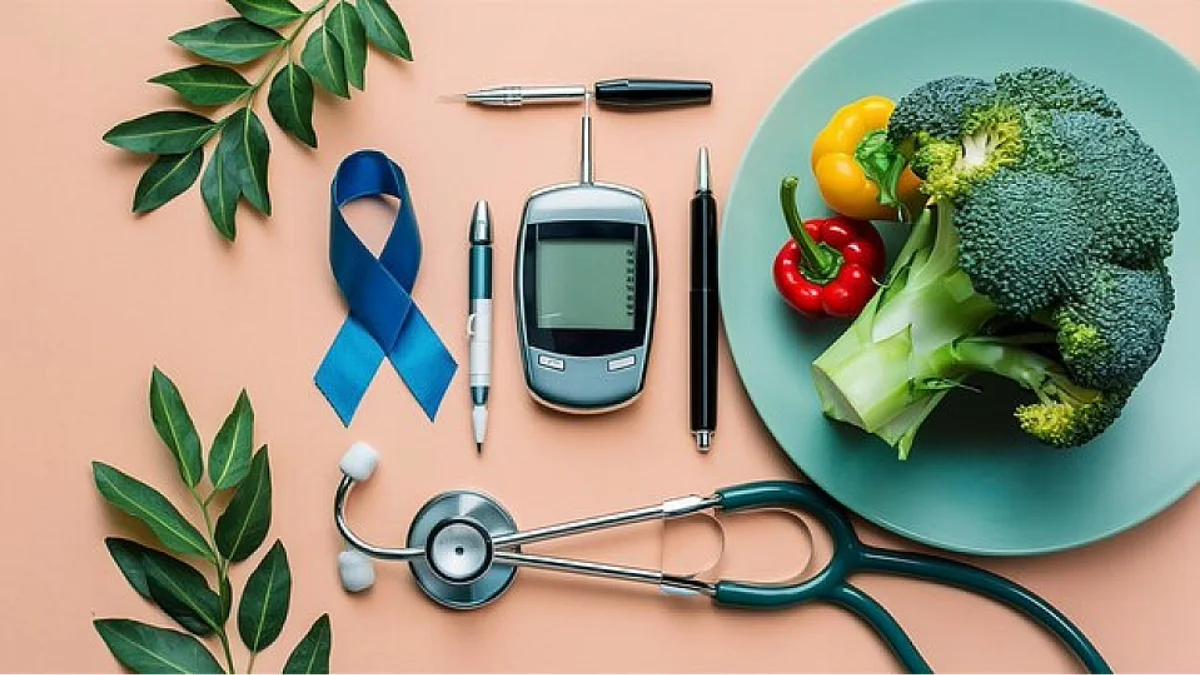Cancer treatment can be physically and emotionally challenging, but one of the key aspects of maintaining strength and vitality during this time is through a carefully tailored diet. Cancer diet programs in Turkey have gained attention for their holistic approach to supporting patients through treatment and recovery. By focusing on specific foods that support the immune system, manage side effects, and promote healing, these diet plans aim to improve the quality of life and aid in recovery. In this guide, we will delve into the essential foods, supplements, and diet programs that are integral to cancer care, particularly focusing on the nutritional practices followed in Turkey.
Foods to Include in Your Cancer Diet Program
Plant-Based Proteins
During cancer treatment, incorporating plant-based proteins into your diet is crucial. These proteins are packed with essential vitamins and minerals that enhance overall health. Vegetables, beans, legumes, nuts, and seeds are excellent sources of plant-based proteins. For those who also consume animal proteins, lean options such as chicken and fish should be included. These foods support muscle maintenance and immune system functionality, both of which are vital during treatment.
Healthy Fats
Monounsaturated and polyunsaturated fats are key components of a cancer-fighting diet. Avocados, olive oil, grapeseed oil, and walnuts are rich in omega-3 fatty acids, which not only combat inflammation but also support cardiovascular health. Including these healthy fats in your meals can help balance hormone levels, improve cell regeneration, and promote overall well-being during chemotherapy or other cancer treatments.
Healthy Carbohydrates
When selecting carbohydrates for your cancer diet program, it is important to choose foods that are minimally processed. Whole grains such as whole wheat, bran, and oats are excellent sources of soluble fibre. This type of fibre aids in maintaining good gut health, improving metabolism, and supporting cellular repair. Healthy carbohydrates help regulate blood sugar levels and provide sustained energy throughout the day.
Vitamins and Minerals
Vitamins and minerals play a crucial role in boosting the immune system and reducing inflammation. Cancer patients often face nutritional deficiencies due to treatment side effects. Foods rich in vitamin D, such as fortified milk, orange juice, and yoghurt, can help maintain bone health and immune function. By including a wide range of colourful fruits and vegetables in your diet, you ensure an intake of essential vitamins and minerals that contribute to the body’s healing process.
Supplements During Cancer Treatment
If you are unable to consume enough nutrients through food due to treatment side effects like nausea or loss of appetite, taking supplements may be beneficial. Vitamin D is particularly important, as deficiencies in this nutrient are common among cancer patients. Vitamin D helps reduce fatigue, strengthens the immune system, and supports bone health. However, it is always advisable to consult with a registered dietitian or oncologist before adding any supplements to your diet to ensure they are compatible with your treatment plan.
Managing Cancer Treatment Side Effects with Diet
Cancer treatments often bring about side effects such as appetite loss, constipation, diarrhoea, and nausea. The right diet can help alleviate these symptoms and improve the patient’s quality of life.
Appetite Loss
To manage appetite loss, it is recommended to eat small, frequent meals or snacks throughout the day. Focusing on nutrient-dense foods such as nuts, seeds, and high-protein snacks can ensure that you are still receiving adequate nutrition, even with a reduced appetite.
Constipation
Incorporating high-fiber foods such as vegetables, fruits, and beans into your meals can help manage constipation. It is also essential to drink plenty of water to aid digestion and promote bowel regularity.
Diarrhea
When dealing with diarrhoea, it is important to replenish lost fluids and electrolytes. Foods and drinks high in sodium, such as sports drinks or broth, as well as potassium-rich options like bananas and natural fruit juices, can help restore balance.
Loss of Taste
For patients experiencing taste changes, trying new foods with bold spices or marinades can help stimulate appetite. Strong flavours, such as lemon or lime juice, can also enhance the taste and make meals more enjoyable.
Nausea
Anti-nausea foods such as ginger, peppermint, and citrus can help alleviate nausea during cancer treatment. Ginger tea, ginger chews, or sucking on a slice of lemon are popular remedies that provide relief.
Foods to Avoid During Cancer Treatment
During cancer treatment, it is crucial to avoid foods that may increase inflammation or put additional strain on your immune system. Highly refined, processed foods and fried foods containing hydrogenated oils should be minimized. These foods can contribute to inflammation and make recovery more difficult.
Since cancer treatments often compromise the immune system, it is important to avoid foods that carry a higher risk of foodborne illnesses, such as:
- Raw or lightly cooked fish (e.g., sushi)
- Soft-cooked eggs or foods containing raw eggs (e.g., homemade mayonnaise)
- Unpasteurized cheeses and dairy products
- Unwashed fruits and vegetables
Planning Your Cancer Treatment Diet
Working with a registered dietitian is one of the best ways to ensure that your cancer diet program meets your specific nutritional needs. A dietitian can help you plan meals that are not only healthy but also practical and suited to your lifestyle. For example, if you don’t have the energy or time to cook, healthy takeout options or pre-prepared meals can be a great choice. On a budget? Focus on affordable, nutritious foods like beans, frozen fruits, and vegetables.
Does Eating a Healthy Diet Reduce Cancer Risk?
While no single food can guarantee the prevention of cancer, a healthy and balanced diet can significantly reduce your risk. A diet rich in fruits, vegetables, whole grains, and lean proteins, combined with maintaining a healthy weight, can lower the risk of developing cancer. Studies have shown that obesity is a contributing factor to 13 different types of cancer, making weight management through diet and exercise essential in cancer prevention.
Cancer-Causing Foods and Drinks to Avoid
To reduce the risk of cancer, it is advisable to limit the intake of certain foods and beverages:
- Processed and Red Meat: Frequent consumption of processed or red meat has been linked to an increased risk of bowel cancer.
- Alcohol: Alcohol consumption has been linked to seven types of cancer. Reducing or eliminating alcohol intake can lower this risk.
- High-Calorie Foods and Sugary Drinks: Foods high in fat, sugar, or calories can contribute to weight gain, which in turn increases the risk of various cancers.
Foods That May Prevent Cancer
While there are no guaranteed cancer-fighting foods, certain foods can contribute to reducing cancer risk. High-fiber foods like whole grains are particularly beneficial for reducing the risk of bowel cancer. Dairy products such as cheese and milk have also been linked to a reduced risk of bowel cancer.
Is There an ‘Anti-Cancer’ Diet?
While no specific diet can prevent cancer entirely, following a healthy, balanced diet is your best strategy. A diet rich in fruits, vegetables, whole grains, and healthy protein sources—while limiting processed and red meats, alcohol, and sugary foods—helps maintain a healthy weight and reduce the risk of cancer.
Conclusion
Cancer diet programs in Turkey are designed to provide holistic support for patients throughout their cancer treatment journey. By focusing on balanced, nutrient-dense meals, patients can better manage side effects, improve their energy levels, and enhance recovery. If you’re considering dietary support during cancer treatment, consult with a healthcare professional at institutions like Avicenna International Hospital in Istanbul, where expert dietitians are available to guide you in making informed and beneficial food choices during your treatment.
Countries like the United States, Germany, Switzerland, and Japan are renowned for their advanced cancer treatment facilities, offering cutting-edge technology and world-class specialists. Turkey, with its growing healthcare sector, especially in hospitals like Avicenna International Hospital, is also emerging as a prominent destination for cancer treatment.
Cancer patients aiming to gain weight should focus on nutrient-dense foods such as avocados, whole grains, lean proteins (like chicken and fish), healthy fats (olive oil, nuts), and dairy products. Additionally, high-calorie smoothies or shakes made with milk, yoghurt, and nut butter can help in increasing calorie intake.







